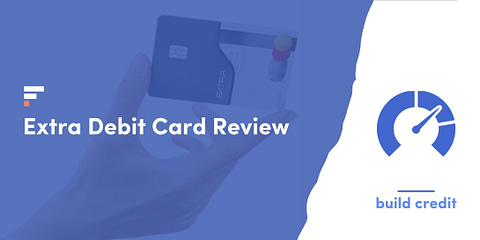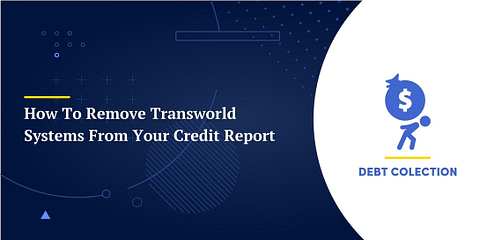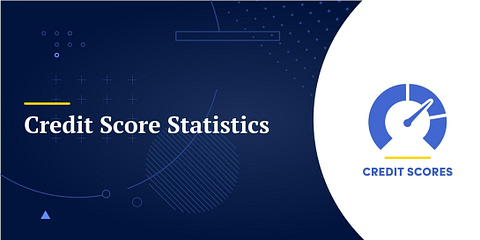Your credit score is an important part of your financial life. You’re happy when it goes up, but seeing it fall is frustrating, especially if your credit score goes down when nothing has changed in your finances. This can make you wonder, “Why did my credit score go down when nothing changed?”
There are many reasons your credit score could drop unexpectedly. Some are innocuous, while others could require quick attention to fix.
Components of Your Credit Score
To understand the different ways that your credit score could drop unexpectedly, it’s important to understand how credit scores work.
Your credit score is composed of five factors, in order from most to least important:
- Payment history
- Amount owed/credit utilization
- Age of credit
- Credit mix
- New credit
Changes in any of these factors could cause your score to drop.
Why Your Score Could Go Down When Nothing Changed
There are a variety of explanations for a surprise drop in your credit score.

Using a Different Scoring Model
One of the simplest and least worrying reasons that your credit score could drop unexpectedly is that you’re not comparing scores that used the same model.
When people think about their credit score, they often think of it as a single number, but that isn’t quite true. There are many different credit scoring models out there.
Two popular credit scores are the FICO Score and the VantageScore. They both look at similar factors, but they weigh things slightly differently.
Even within the FICO Score and VantageScore systems, there are differences. For example, FICO has FICO 8, FICO 9, FICO Auto Score, FICO Bankcard Score, and more. All of these scores are used by different lenders for different purposes.
Even if you’re looking at two scores calculated using the same model, if the information put into the formula differs, the answer will be different. Each of the three major credit bureaus can have slightly different information about your interactions with credit based on which bureaus your lenders report to.
If you’re looking at a score calculated using data from Equifax and comparing it to a score using data from TransUnion, there may be a slight difference between the two. If you’re comparing a VantageScore (often used by free credit score providers) to your FICO score, there could be a significant difference.
If you’re asking yourself, “why did my credit score go down when nothing changed?” the first step to take is to make sure that you are comparing scores of the same type.
Unexpected Hard Inquiry
Understanding the reasons behind a credit score decline is essential, particularly when you find yourself asking, “Why did my credit score go down when nothing changed?” One common but often overlooked reason is the effect of hard inquiries.
Whenever you apply for a credit card or loan, the lender will check your credit score with one or more of the credit bureaus. When this happens, the credit bureau places that information on your credit report. This is called a hard inquiry, and each hard inquiry on your credit report can cause it to drop by a few points.
A loan isn’t the only thing that can lead to a hard inquiry into your credit.
Renting a car, especially if you pay for the rental with a debit card or cash, could lead to a hard inquiry. The rental company will check your credit to make sure you’ll be able to pay for any damage or other issues with the card.
Signing up for a new cell phone plan could also lead to a hard inquiry if you’re trying to get a monthly contract. The cell phone company wants to make sure you’ll pay your bill before offering service.
Asking an existing credit card provider for a credit limit increase or applying for a business credit card can lead to hard inquiries on your personal credit as well.
If your credit score has dropped due to an unexpected hard inquiry, the impact is likely to be small, and it will fade quickly. As long as you can confirm that the inquiry was, in fact, caused by your actions, it’s not a major concern.
Co-Signing On a Loan
Co-signing on a loan can be another reason why your credit score could go down when nothing changed. When you co-sign on a loan for someone else, it can help them qualify for a loan they otherwise wouldn’t get or secure a lower interest rate. The reason for this is that you’re promising to pay the debt on their behalf if they aren’t able to make payments.
Because you’re sharing responsibility for the loan when you co-sign, the lender will want to check your credit, which means a hard inquiry will show up on your credit report. The loan balance and payment history will also show up on your credit, which could also cause it to drop by a few points.
An Old Account Was Closed
If you’re puzzled by the question, “Why did my credit score go down when nothing changed?” consider the impact of old credit accounts. You may have an old credit card lying around that doesn’t see much action these days. After a long enough period of inactivity, your credit card issuer might choose to close the card because you’re no longer making any purchases on it.
Closing an old account, either intentionally or through inactivity, can cause your credit score to drop, sometimes by quite a lot.
First, closing an old account lowers the age of your credit accounts. The older your average credit account, the better your score will be. For example, if you have three cards, one that’s 10 years old, one that’s 4 years old, and one that’s 1 year old, letting the oldest one close will drop the average age of your accounts from 5 years to 2.5 years.
That can lead to a big decrease in your score.
Closing an account also reduces your available credit, which can boost your credit utilization ratio. Your credit utilization ratio is the percentage of your total credit limits that you’re using. The more credit you have access to, the more of a balance you can build up without lowering your score by much. Removing some of your available credit means that a lower card balance will have a bigger impact on your score.
Your Credit Card Balance Went Up
This is another explanation that’s tied to your credit utilization ratio. If you spent a bit more on your credit cards than usual this month, it could lead to a drop in your credit score.
When your card statement closes, your credit card issuer sends details about your account, including its balance, to the credit bureaus. Even if you pay the balance off in full, the credit bureaus still see that higher balance, which can lead to higher credit utilization.
The good news is that credit bureaus don’t track the history of your credit utilization. Once you pay off the card and the card issuer reports next month’s balance, your score will return to normal so long as your balance also returns to normal. However, this does mean that big purchases on a credit card could cause a temporary drop in your credit.
If you plan to apply for a major loan, like an auto loan or mortgage, it’s important to try and avoid using your credit cards for large purchases as it can cause a drop in your credit score, making you wonder, “Why did my credit score go down when nothing changed?”
A Lender Reduced Your Credit Limit
Credit card issuers don’t usually make changes to your credit limit unless you ask for a credit limit increase, but they’re well within their rights to adjust your credit limits at will. That can mean increasing them or reducing them.
If one of your credit card issuers reduces the credit limit on one of your credit cards, that will reduce your total available credit. Like making larger than normal purchases using your credit card, which can cause your credit utilization to rise, causing your score to decrease and making you wonder why your credit score went down when nothing changed.
A Mistake On Your Credit Report
Credit bureaus aren’t perfect. They do make mistakes, and there could be inaccurate information on your credit report. Adding an account that isn’t yours, marking a timely payment as late, or putting the wrong number for a balance or credit limit could all cause your credit score to drop.
If there’s a drop in your credit score and you are thinking, “Why did my credit score go down when nothing changed?” it’s a good idea to check your credit every once in a while to make sure your credit report is error-free. Each bureau is required, by law, to give you a free copy of your credit once per year, and there are many other free services you can use to monitor your credit.
If you identify an error, reach out to the credit bureau to dispute it. Each bureau has a slightly different process for reporting errors, so make sure to follow the appropriate process based on the bureau that has inaccurate information.
Identity Theft
Dealing with the confusion of “Why did my credit score go down when nothing changed?” can sometimes be traced back to identity theft, a serious problem that affects many people. More than 300,000 Americans fall victim to scams that can lead to identity theft each year.
If someone steals your identity, they can do a lot of things that will damage your credit score. Applying for new loans in your name and racking up debt are among the most common ways identity thieves will damage your credit.
If you think you’re a victim of identity theft, the first thing to do is reach out to the credit bureaus and put a fraud alert on your credit. This will help prevent the thieves from opening any more accounts in your name. You’ll also want to file a police report. The FTC has an identity theft report page that can generate a recovery plan for you.
Reach out to any companies that the fraudsters have opened accounts with and let them know that the accounts were not opened by you and that you’ve been a victim of identity theft. You should also check your credit card and bank statements to make sure no one has accessed those accounts without your permission.
As you recover, consider signing up for an identity or credit monitoring service so you can try to prevent identity theft from happening again.
Derogatory Marks Added to Your Report
One of the most common reasons for a drop in your credit score is a derogatory mark on your credit report. If you’re asking yourself, “Why did my credit score go down when nothing changed?” it is always possible that you have overlooked a payment, and it was reported as late.
Check your financial records to be sure you haven’t missed anything…
What to Do When Your Credit Score Drops Unexpectedly
Many people often wonder, “Why did my credit score go down when nothing changed?” If you notice an unexpected decrease in your credit score, the first thing to do is see how much it’s gone down. A minimal drop is nothing to get alarmed about. Just keep track and make sure the trend doesn’t continue.
If the drop is significant, you’ll need to figure out what the root cause is.
The best way to do this is to check your credit reports. This will tell you if there are any actual changes in your credit history that could have brought your score down. You will need to know how to get your credit report and how to read a credit report.
Some of the things that can cause a drop in your credit are no big deal. For example, looking at a score produced using a different model or having a slightly higher credit card balance in one month is not a cause for major concern.
Some changes require immediate attention. If you notice mistakes on your credit report, you need to report them to the credit bureaus as soon as possible. Identity theft also requires an immediate response.
If your credit score has gone down when nothing changed in your financial life, you don’t need to panic. You do need to find out what happened and why!
























